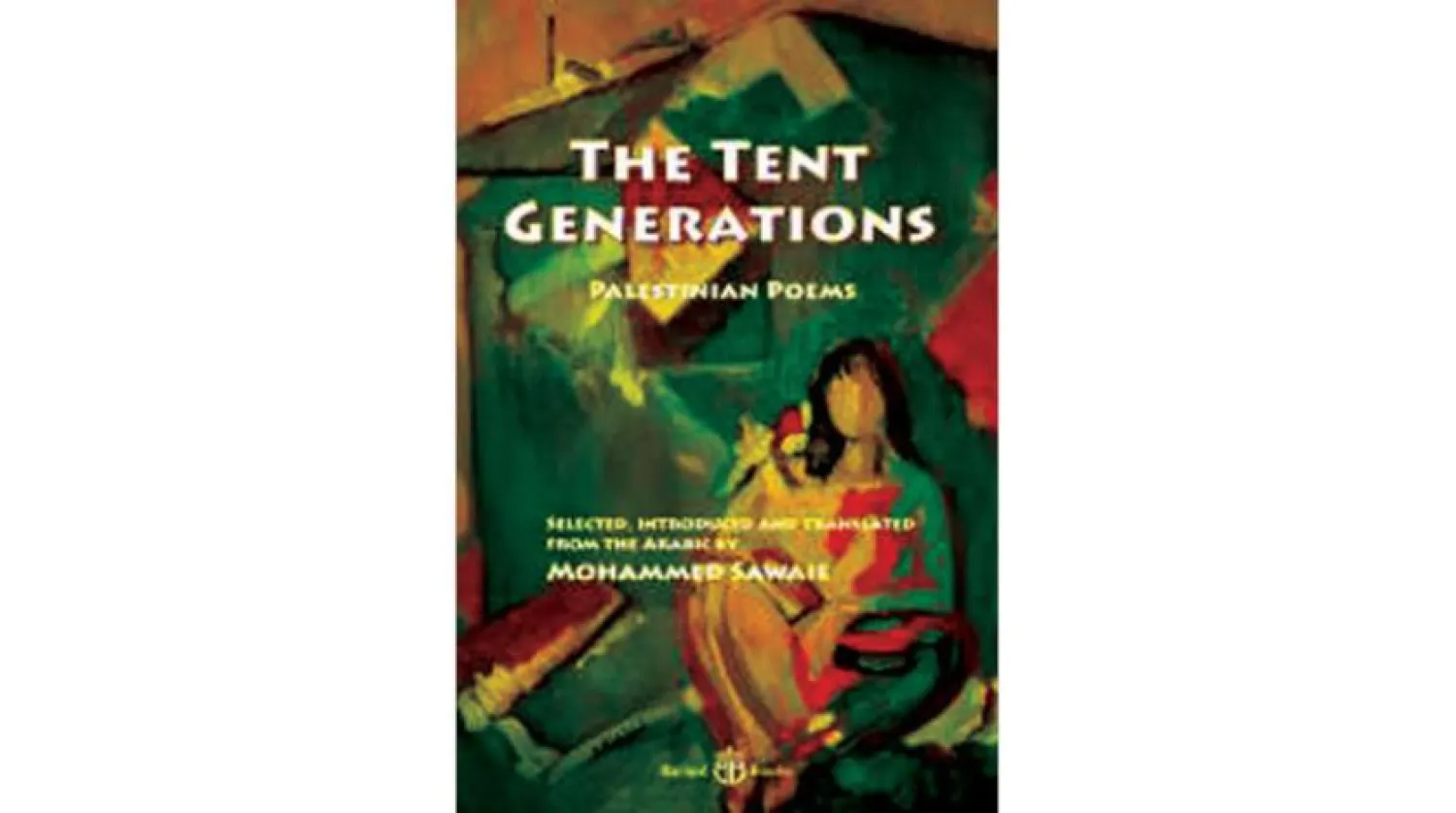Banipal Publishing, London, released a Palestinian anthology, titled "The Tent Generations. Palestinian Poems", translated and edited by Mohammed Sawaii. The book consists of a selection of poems written by 16 Palestinian poets from different generations, from the Israeli-occupied territories of 1948, the lands occupied between 1967 and 1973, and the Palestinian diaspora in Arabic countries.
The poets of this collection were selected by Sawaii, Arabic professor at the University of Virginia, who also translated the poems published in this book into English.
This collection includes poems by prominent poets from the contemporary poetry movement in occupied Palestine, which started in the early 1960s among the Palestinians who persisted in their country after 1948, like Tawfiq Ziad, Samih al-Qasim, Rashid Hussein, Asma Tubi, and Salem Gibran, and poets from the following generation.
The book also includes poems of Palestinian poets who lived in the occupied territories after the full occupation of the historic Palestinian lands in 1967, like Fadwa Tuqan, Zaynab Habash, and Abdul Wahab Zahda, in addition to diaspora poets who were displaced to many Arab countries after the successive wars starting 1948, like Haroun Hashem Rashid, Muin Bseiso, Mahmoud al-Najjar, Youssef al-Deek, Youssef al-Khatib, and Mohammed al-Kaissi.
The collection published in English for the first time, also features an introduction that showcases the literary history of Palestinians, who persevered after the occupation, and struggled with the oppressive, military domination between 1948 and 1966.
It also explores the role of poetry in fighting the Israeli hegemony and embargo that affected people’s life in different aspects.
The introduction sheds light on the poetic production in Palestine since 1948, and provides short, translated biographies of the poets, English captions, as well as some historic, geographic, and historic explanations that help the foreign reader understand the Palestinian struggle.









